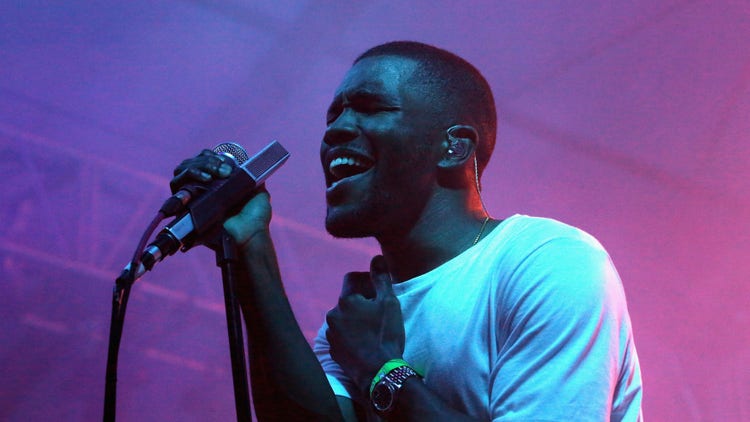
Last weekend, my grandmother and I strapped in and loaded up the car to prepare for a six-hour trek down to her hometown: Tappahannock, VA. As we backed out of our New Jersey driveway, we were accompanied by her energetic Yorkie as well as a playlist I’d filled with many of her favorite soulful classics—the ingredients for nostalgia and positivity.
However, as we grew nearer to the South, it became evident that this trip would be a mixed bag for her. We were heading to her “home” for a joyful family gathering, but also approaching an environment that had been the source of many of her nightmares. After all, my grandmother had been a teenager during the 1960s, and the terror of Jim Crow wasn’t that long ago. I’m sure my well-intentioned soundtrack from that era wasn’t helpful either.
Hip hop music has the same duality. Many of our club anthems uplift us when we desire to think less and “feel good” more. I mean, recent classics like Future’s “March Madness” and Migos’s “Bad and Boujee” are guaranteed to get you in your bag years later. But, hip hop music is also about reconciling emotions like sadness and anger. While hip hop is recognized as the product of R&B and soul music, the dynamic genre is also the heir apparent to Blues.
B.B. King, Muddy Waters, and Etta James were some of the most influential artists of their day, crooning confessionals about subjects ranging from addiction to failed romances to institutional racism. Today’s most influential artists have done the same.
For all of his trolling antics, attention-seeking behavior, and toxic political views, we should acknowledge an exceptional thing Kanye did on ye—not for his sake, but for the sake of the culture. West candidly shared how his desire for acceptance swept him into a deep depression and almost cost him his family. Perhaps his most tumultuous battle for acceptance happened internally, a tussle to come to terms with his own bipolar disorder.
At the end of “Yikes,” Kanye triumphantly embraces his mental disability as a “super power.” This statement engages and de-stigmatizes mental disability in a nuanced way, prompting us to think of what people with “disorders” can potentially offer to society. Perhaps people who see and experience the world differently can open up new topics for discussion and further innovation. The daily adjustments people with mental and physical disabilities make to be functional can even orient us to new ways of living life.
Wordsmiths J. Cole and Royce da 5’9″ have taken deep dives into addiction with their latest efforts KOD and Book of Ryan, respectively. The most unsettling track on the album, “Once an Addict (Interlude)” sees Cole describing how his mother’s alcoholism drew them further apart. In the end, his rearview mirror is regretful: “I didn’t know how deep her sadness would go / Looking back, I wish I would’ve did more instead of running.”
Where J. Cole hints at the tough subject, Royce’s entire album peels back how generational trauma is passed on—especially in black families. In the Cole-assisted “Boblo Boat,” Royce reveals that he and his brother inherited their alcohol abuse from their father. After painting jovial imagery such as “plastic scooters” and “amusement parks,” we learn that this cheerful scene is held together by a loose thread: “The first time big bro hit the bottle was on the Boblo boat / But neither of us knew we’d grow up and turn to alcoholics though.” Royce reminds us that family members are often the greatest cause of many of our anxieties.
On her slept-on masterpiece Dirty Computer, Janelle Monae engages joy, pain, and self-discovery in ways only a black queer woman could. After describing a liberating same-sex romance on “Pynk,” she reveals the susceptibility to constant self-doubt that comes with queerness. In the opening verse of “Don’t Judge Me,” Monae shares her greatest fear: “Even though you tell me you love me, I’m afraid that you just love my disguise.”
After his classic debut Channel Orange created Thriller-level expectations for the follow-up, Frank Ocean gave us an even more intense look into his psyche. A gripping stream of consciousness, Blonde makes it nearly impossible not to get in your feelings. On “Ivy,” Frank captures the sadness of losing childhood innocence and optimism as he croons “we’ll never be those kids again.” On “Self Control,” he yearns for his closeted male lover’s heart until he concedes: “Keep a place for me / I’ll sleep between y’all”—(the lover and the girlfriend he’s cheating on)—“It’s nothing.”
On Ctrl, last year’s best R&B album, the opener “Supermodel” shows SZA at her pettiest and most vulnerable. After bragging about how she exacted revenge on a cheating ex by “secretly banging [his] homeboy,” we see that the act pushed her deeper into despair. SZA shares that she often feels insecure (“leaving me for prettier women”) and has weathered considerable damage to her self-worth (“Why am I so easy to forget like that?”).
Blues music is about humanizing pain. With hip hop taking the mantle in this arena, we see how queer people and women of color have added layers to our discussions about trauma. We all benefit from hearing these voices in addition to the voices we identify with. A culture-shifting genre, hip hop has the power to progress as long as new voices are continuously welcomed at the table. Our culture has never been as accepting as it could be, but it’s clear we are slowly moving forward thanks to these brave voices. Though I disagree with 99% of what Kanye has said over the last few weeks, we agree on one thing: the world needs more empathy.
More by Raheem Veal: